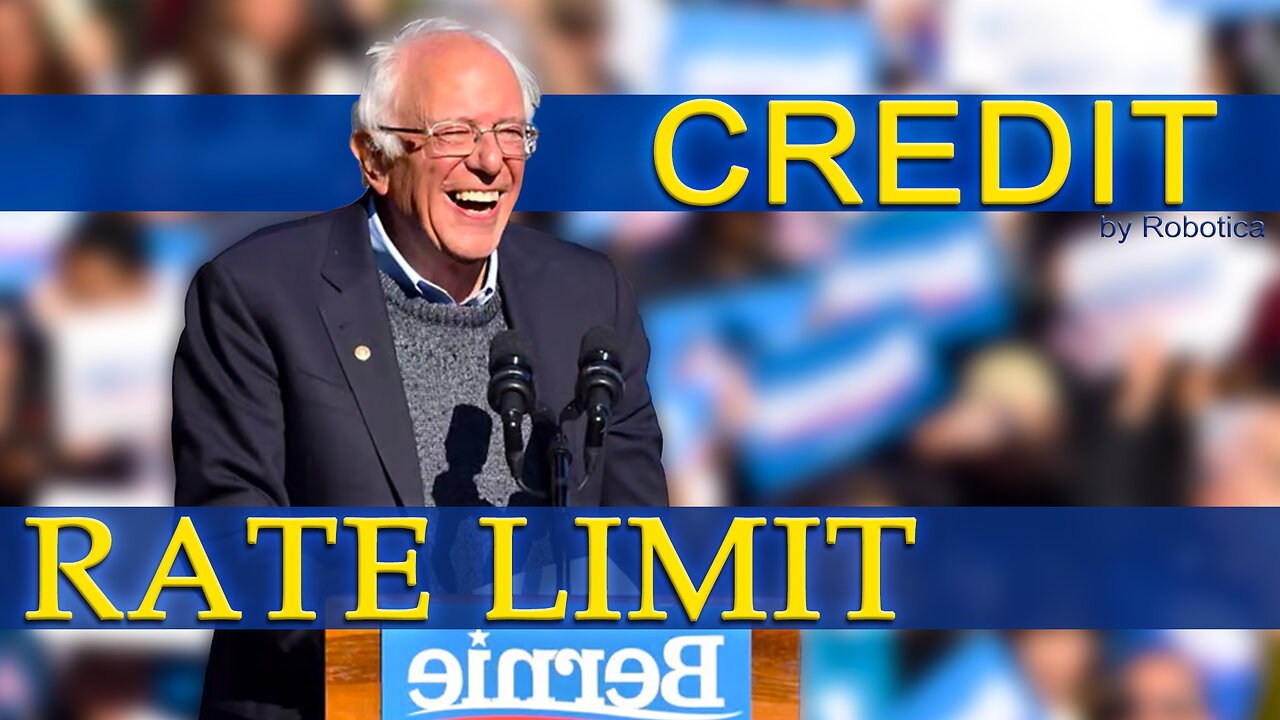Premium Only Content

Sanders and Hawley Team Up to Propose 10% Credit Card Interest Rate Cap
Exclusives On Rumble: https://rumble.com/c/RoboticaNews
In a surprising twist of political collaboration, Senators Bernie Sanders (I-VT) and Josh Hawley (R-MO) have unveiled a bipartisan initiative to cap credit card interest rates at a mere 10% annual percentage rate (APR). This bold proposal, promoted as a step towards financial relief for struggling consumers, echoes a campaign promise made by former President Donald Trump during the 2024 election cycle.
The bill, introduced on February 6, 2025, seeks to protect millions of Americans grappling with credit card debt that has skyrocketed under high-interest environments. "We are here to take a stand against the exploitative practices of credit card companies charging interest rates well above 25%," said Senator Sanders. "This legislation is a critical step toward ensuring that working families are no longer preyed upon by loan sharks in the guise of financial institutions."
Senator Hawley further elaborated on the dire situation, highlighting the staggering $105 billion paid in credit card interest by American consumers in 2022 alone. "Capping the interest rate at 10% addresses the overwhelming burden that record credit card debt places on working Americans," he stated. "This measure is a straightforward yet necessary solution to what has become an all-too-common financial crisis."
Consumer advocacy groups have applauded the initiative, perceiving it as a potential lifeline for individuals encumbered by rising credit costs. Nonetheless, industry experts have voiced concerns regarding the ramifications of such a cap. Chi Chi Wu, a senior attorney at the National Consumer Law Center, warned that even with a 10% cap, the cumulative costs of credit could remain high due to fees and other charges imposed by lenders.
Critics further argue that the proposed cap could inadvertently harm high-risk borrowers. JD Tuccille, a financial analyst, cautioned that capping interest rates could deter credit card issuers from lending to those deemed too risky, potentially pushing them toward more exploitative lending options, like payday loans. "In attempting to protect consumers, the senators may inadvertently drive them to sources of credit with even worse terms," he explained.
While the bill seeks to address an important consumer protection issue, the road ahead is riddled with challenges. The legislation, if passed, would apply only to new transactions, leaving existing debt untouched. Moreover, the banking sector's pushback remains a significant hurdle, as financial institutions warn that the cap could annihilate access to credit and lead to adverse effects in the lending landscape.
Historical precedents serve as a backdrop to this legislative effort: previous attempts to cap credit card rates, proposed by Senators Hawley and Sanders in 2023 and 2019, respectively, met with insufficient bipartisan support. As public sentiment favors the idea of limiting interest rates, the key question looms: can this current effort muster enough traction in a polarized Senate?
The White House has yet to comment on former President Trump’s stance regarding this proposal, leaving observers in suspense regarding potential political backing from the GOP. As the proposal garners attention, navigating the complex landscape of consumer finance and industry pushback will be crucial for Sanders, Hawley, and the millions of Americans awaiting relief from burdensome credit card debt.
-
 32:43
32:43
Uncommon Sense In Current Times
4 days agoAre Women’s Sports Under Attack? | Penny Nance on Protecting Title IX & Biblical Truth
9.57K -
 LIVE
LIVE
LFA TV
22 hours agoLFA TV ALL DAY STREAM - MONDAY 8/25/25
1,381 watching -
 LIVE
LIVE
freecastle
6 hours agoTAKE UP YOUR CROSS- PROTECTING FREEDOM, PRESERVING HOPE!
161 watching -
 1:17:44
1:17:44
The HotSeat
2 hours agoTrump Drops Hammer: Burn the Flag = 1 Year Prison! Army Deployment Next?!
17.7K11 -
 1:30:12
1:30:12
Jamie Kennedy
20 hours agoThe Truth About Anger, Race, & Feminine Energy w/ Jesse Lee Peterson | Ep 219 HTBITY
14.1K2 -
 1:45:39
1:45:39
The Quartering
6 hours agoMMA Fighter Tries To K*LL Wrestler, Hollywood PANIC & Sam Tripoli's Favorite Conspiracies
147K159 -
 1:05:04
1:05:04
Mark Kaye
5 hours ago🔴 Trump Sends Dems Into RAGE Over Flag Burning Executive Order
21.4K20 -
 LIVE
LIVE
Film Threat
19 hours agoVERSUS: AUGUST BOX OFFICE BLOOD BATH! MARVEL IS COOKED! | Film Threat Versus
91 watching -
![[Ep 734] Leftists Support of Black-on-Black Crime | Bolton Raid / Media Hypocrisy](https://1a-1791.com/video/fww1/0e/s8/1/a/F/p/c/aFpcz.0kob-small-Ep-734-Leftists-Support-of-.jpg) LIVE
LIVE
The Nunn Report - w/ Dan Nunn
2 hours ago[Ep 734] Leftists Support of Black-on-Black Crime | Bolton Raid / Media Hypocrisy
151 watching -
 29:39
29:39
Afshin Rattansi's Going Underground
1 day agoEx-Israeli PM Ehud Olmert: INTOLERABLE Amount of Innocent Palestinians Have Been Killed in Gaza
20.2K29